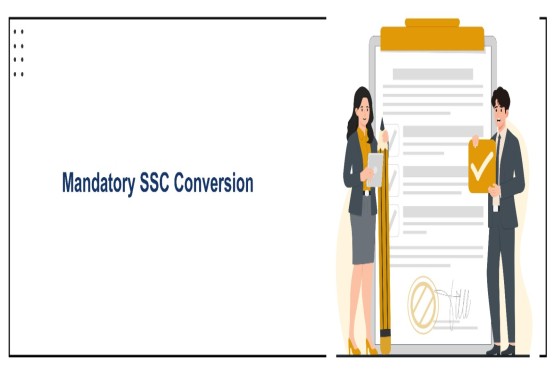Foreign Direct Investment (FDI) plays a vital role in enabling companies to access international capital, strengthen business operations, and expand into global markets. However, behind every successful FDI transaction lies a strong foundation of banking support. Choosing the right bank and banking team is not just a procedural step but a strategic decision that significantly impacts the success of FDI transactions. This paper explores the practical, regulatory, and strategic implications of selecting the right banking partner and outlines the complications that may arise from changing the bank mid-way through an FDI or associated transactions.
To learn more about FEMA/ FDI reporting.
Selecting the Right Bank for FDI Transactions
Variations in Internal Processes
Banks differ widely in how they handle FDI transactions due to their internal compliance protocols, interpretations of RBI FEMA guidelines, and foreign exchange management policies. While some banks have specialised teams with expertise in handling foreign transactions, others may lack the same responsiveness or clarity. The differences are seen in turnaround times for approvals, customer service quality, document requirements, and costs such as forex conversion charges and processing fees.
For instance, while one bank may accept self-attested KYC documents, another might insist on notarised or apostilled versions. Similarly, one bank might complete inward remittance reporting within a day, while another could take a week due to internal bottlenecks. These variances make it essential for companies to initiate discussions with a prospective bank at least three to six months before executing any FDI-related transaction.
Click here to read about RBI FEMA / FDI Reporting.
Long-term Impact on Future Financial Transactions
The bank chosen for handling FDI is likely to become a long-term financial partner, particularly for subsequent funding needs such as External Commercial Borrowings (ECB), trade finance, or term loans. Banks often evaluate lending proposals based on sector-specific risks, existing exposure, collateral availability, and client history. Therefore, a bank that shows a higher comfort level in financing a company from a specific sector can be a more strategic choice.
In addition, banks vary in their internal credit assessment models. Some institutions require credit ratings, personal guarantees from directors, or third-party collateral, while others may offer more flexible terms. A business must therefore assess whether its current or future funding needs align with the lending profile of the bank it is selecting for FDI.
Importance of Selecting the Right Team Within the Bank
Role of Branches and Relationship Managers
Large banks often operate through multiple departments and regional branches. Each branch or division may handle specific functions retail, corporate, trade finance, or compliance. The effectiveness of your banking experience depends heavily on the internal team assigned to your account. Even within the same bank, there can be vast differences in service quality based on the team’s knowledge, experience, and willingness to assist.
For example, a branch located in a metro city like Mumbai or Delhi may have more experienced staff familiar with FDI regulations, while a branch in a smaller city may not handle such transactions frequently. Further, relationship managers (RMs) act as the point of contact and liaison with internal departments. Their ability to coordinate and resolve issues directly affects transaction timelines and accuracy. Changing the team mid-way is not simple, as many banks tag clients to specific branches and internal codes.
Consequences of Changing the Bank Mid-Way
Changing the bank during or after an FDI transaction may appear to be an administrative action but, in practice, it entails multiple legal, regulatory, and operational challenges.
Consent Requirements and RBI Guidelines
Certain foreign banks require a No Objection Certificate (NOC) from the previous bank before allowing a client to open a new current account. Obtaining this consent can delay important transactions. Moreover, as per RBI's circulars and RBI FEMA compliance only banks that have extended credit facilities to a borrower are permitted to open and maintain current accounts. This rule limits the ability of companies to freely shift between banks unless they are also transferring their loan accounts.
Re-execution of Security Documents and Financial Losses
In cases where the company has availed of working capital, term loans, or other financial facilities, switching banks triggers the need to create new security documents. This includes drafting and registering new charge agreements, hypothecation deeds, or mortgage papers. The legal cost involved in such transitions is often substantial. Moreover, most states in India levy stamp duty on the creation of security documents, and in several states, concessions apply only to the first charge registration. Thus, companies face a higher cost burden in re-creating such documentation with the new bank.
Any processing fees, commitment charges, or annual renewal fees already paid to the outgoing bank become sunk costs and are non-refundable.
Logistical Difficulties with Overseas Directors
In multinational or foreign-invested companies, directors may reside outside India. In such cases, obtaining their signatures on fresh banking documents, notarised affidavits, or board resolutions can lead to unavoidable delays. Compliance-related filings with the Registrar of Companies (ROC), such as creation and satisfaction of charges (using Forms CHG-1 and CHG-4), must also be timed accurately. The involvement of overseas stakeholders further complicates this process
To know more about ROC compliance.
Operational and Regulatory Complications
Disruption of Existing Credit Instruments
Companies that rely on trade finance instruments such as PCFC (Pre-shipment Credit in Foreign Currency), PCINR (in INR), Buyer's Credit, or Open Letters of Credit (LCs) face disruptions when shifting banks. These instruments are often sanctioned as part of a long-term credit arrangement and terminating them before maturity may not only affect cash flow but also invite penalties and loss of credibility with foreign suppliers.
Transferring such instruments mid-cycle also requires the new bank to complete KYC, credit appraisals, and internal approval processes often from scratch. This could delay procurement, production, or shipment cycles for exporters and manufacturers.
Unresolved FEMA Compliances
Banks are responsible for reporting inward foreign remittances and facilitating the filing of FC-GPR forms under FEMA regulations. If there are pending filings or documentation clarifications with the outgoing bank, they may not show the same interest in completing them once the relationship ends. This puts the company at regulatory risk, potentially leading to notices from RBI or penalties under FEMA.
The new bank, too, may be hesitant to take responsibility for past compliances, particularly if the remittance documentation is incomplete or ambiguous.
Updating Multiple Government Authorities
When changing the banking partner, it is critical to update the new bank details across various government portals:
-
Income Tax Department: for refund processing and TDS registration
-
GST Portal: for credit flow and refund claims
-
DGFT (IEC portal): for exporter licensing and profile details
-
ICEGATE: for claiming duty drawbacks and custom clearances
Failure to timely update these portals may result in blocked refunds, rejected drawback claims, and interruption in import/export activities. Additionally, customers and vendors must be informed, and bank mandates must be updated in accounting software and agreements.
In Summary
Choosing the right bank and internal team for FDI transactions is a strategic decision that requires careful thought, due diligence, and advance planning. It is advisable to initiate the banking relationship three to six months before any foreign investment transaction to allow sufficient time for compliance checks, document collection, and onboarding.
Changing the bank after the FDI transaction may create several legal, financial, and operational hurdles, ranging from regulatory delays and document re-execution to financial losses and reputational damage. Businesses must therefore assess not just the cost or convenience of a bank but its long-term value in supporting the company's growth, financing needs, compliance management, and global ambitions.
Ultimately, FDI is not just about capital inflow it’s about building strategic, long-term partnerships. The right banking partner can significantly enhance a company’s ability to navigate the complexities of cross-border finance with confidence and compliance.
FAQs
Q1. When should I ideally begin discussions with a bank for an upcoming FDI transaction?
Ans. You should ideally begin engaging with potential banks 3 to 6 months before the expected transaction date. This period allows sufficient time for internal compliance checks, due diligence, onboarding procedures, understanding document requirements, and aligning transaction timelines.
Q2. Is it mandatory to use the same bank for both FDI receipt and future loan financing?
Ans. No, it is not mandatory. However, using the same bank provides operational efficiency, faster processing of ECBs or working capital loans, and helps maintain a consolidated compliance trail with regulators like the RBI. It also enhances your credit relationship with the bank.
Q3. How can I compare banks before choosing one for FDI?
Ans. You can compare banks based on the following factors:
-
Response time for FDI remittances
-
Clarity in interpreting FEMA and RBI circulars
-
Documentation checklist and flexibility
-
Transaction and forex charges
-
Branch and Relationship Manager experience in handling FDI
-
Integration with digital platforms like ICEGATE, RBI-FIRMS, and GSTN
Requesting a service-level presentation and checking references from other businesses in your industry can help with this comparison.
Q4. Can I use different banks for inward FDI and outward remittances?
Ans. Yes, you may use different banks, but it complicates compliance. For example, the bank receiving FDI is responsible for FC-GPR filing with the RBI. If another bank is used for outward remittance (e.g., dividend payment or royalty), both banks must maintain proper records to avoid reporting mismatches or delays in compliance filing.
Q5. What happens if a bank misreports or delays my FC-GPR filing? Who is held responsible?
Ans. If your bank delays or misfiles the FC-GPR or any FDI-related compliance, you (the investee company) are ultimately responsible before the RBI. While the bank is the facilitator, any show-cause notice or penalty under FEMA is issued to the company. Hence, choosing a bank with a good compliance track record is essential.
Q6. Can a company operate more than one current account across different banks under RBI guidelines?
Ans. Yes, but with restrictions. As per RBI Circular dated August 6, 2020, only banks that have credit relationships with the company (loan or CC/OD) can open and maintain current accounts. Companies without any loans must restrict their current account to a single bank or within limits across consortium banks.
Q7. How does the bank selection affect my ability to claim Export Incentives or Duty Drawbacks?
Ans. Your export incentives (like MEIS, RoDTEP) and duty drawback claims are credited via ICEGATE to the bank account linked to your Import-Export Code (IEC). If you change your bank and forget to update ICEGATE, your benefits may be delayed or lost. Hence, the selected bank should have ICEGATE integration and familiarity with DGFT procedures.
Q8. Can startups with foreign investment operate only through payment gateways or fintech banks?
Ans. No. While fintech platforms like Razorpay or Paytm Payments Bank offer convenient onboarding, they cannot receive FDI remittances or handle FEMA reporting. Only Authorized Dealer (AD) Category-I banks like SBI, HDFC, ICICI, or Axis Bank are permitted to handle FDI transactions and RBI filings.
Q9. Can the same banker handle both FDI and Equity Share Allotment compliance?
Ans. Yes, banks often assist in submitting the FC-GPR through the RBI FIRMS portal and may offer value-added services in coordination with your Chartered Accountant or Company Secretary. However, they do not handle the ROC-related compliance (like Form PAS-3). That remains your or your compliance professional’s responsibility.
Q10. What should I do if my banker lacks knowledge of a complex FDI structure, like convertible notes or CCDs?
Ans. If your bank lacks understanding of advanced FDI instruments like Convertible Debentures (CCDs) or Convertible Notes, consult with a legal or FDI advisory firm. You may also escalate the matter within the bank or seek a different bank with experience in such instruments. Some banks have dedicated international business desks for this.
Q11. Are there any FEMA violations if I change the bank without completing past FDI filings?
Ans. Yes. If FDI-related filings like ARF, FC-GPR, FLA are not completed, and you change your bank, it may lead to non-compliance under FEMA. The new bank may refuse to file pending forms unless they receive a full set of previous documents. RBI may impose penalties or compounding fees for delayed or incorrect reporting.
Q12. What are some red flags to avoid while choosing a bank for FDI?
Ans. Avoid banks that:
-
Have long internal processing times for foreign transactions
-
Are unfamiliar with FEMA/RBI procedures
-
Lack digital banking integration
-
Frequently change relationship managers
-
Have no ICEGATE or DGFT coordination experience
-
Demand excessive documentation without clarity
Q13. How do I update my new bank details with all relevant government departments after switching banks?
Ans. You must manually update your bank details in the following portals:
-
Income Tax (via TRACES login): For TDS refunds
-
GST Portal: In the Registration Amendment section
-
ICEGATE: Through AIN code and IEC registration
-
DGFT: Using IEC modification facility
-
MCA: If share capital is involved (for ROC filings)
-
SEZ or Customs (if applicable): Via zone-specific documentation
This process may take 2–3 weeks depending on department approval time.
Q14. Can a foreign director sign security documents electronically or must it be notarized?
Ans. For most Indian banks, physical signature with notarisation/apostille is required for key financing and security documents involving foreign directors. E-signatures may be acceptable for general resolutions but not for legal contracts involving charge creation. It's best to check with the bank's legal team beforehand.
Q15. Is it necessary to inform the RBI when the bank is changed post-FDI?
Ans. There is no mandatory RBI notification for merely changing banks. However, if any FDI compliance filing is pending or already underway, then the handover must be clearly documented, and RBI may require clarification through the new bank (called AD Bank transfer). This is especially important for ongoing FC-GPR, FLA filings, or ECB registrations.











































































_crop10_thumb.jpg)


































































_crop10_thumb.jpg)
_crop10_thumb.jpg)



_crop10_thumb.jpg)


_crop10_thumb.jpg)





_crop10_thumb.jpg)

_crop10_thumb.jpg)














-suratgujarat-section-158_crop10_thumb.jpg)
-suratgujarat_crop10_thumb.jpg)
-(33)_crop10_thumb.jpg)



-ahmedabad_crop10_thumb.jpg)
-learn_crop10_thumb.jpg)

-learnn_crop10_thumb.jpg)



























































_crop10_thumb.jpg)























_Guidelines_learn_crop10_thumb.jpg)























_learn_crop10_thumb.jpg)
_crop10_thumb.jpeg)










_crop10_thumb.jpg)




_Second_Amendment_Rules,_2025_learn_crop10_thumb.jpg)







_learn_crop10_thumb.jpg)












































_learn_crop10_thumb.jpeg)






















_learn_crop10_thumb.jpg)



_rd_roc_learn_crop10_thumb.jpg)
















_learn_crop10_thumb.jpg)














_learn_crop10_thumb.jpg)
_Learn_crop10_thumb.jpg)











































_learn_crop10_thumb.jpg)




_learn_crop10_thumb.jpg)













_crop10_thumb.jpeg)


















